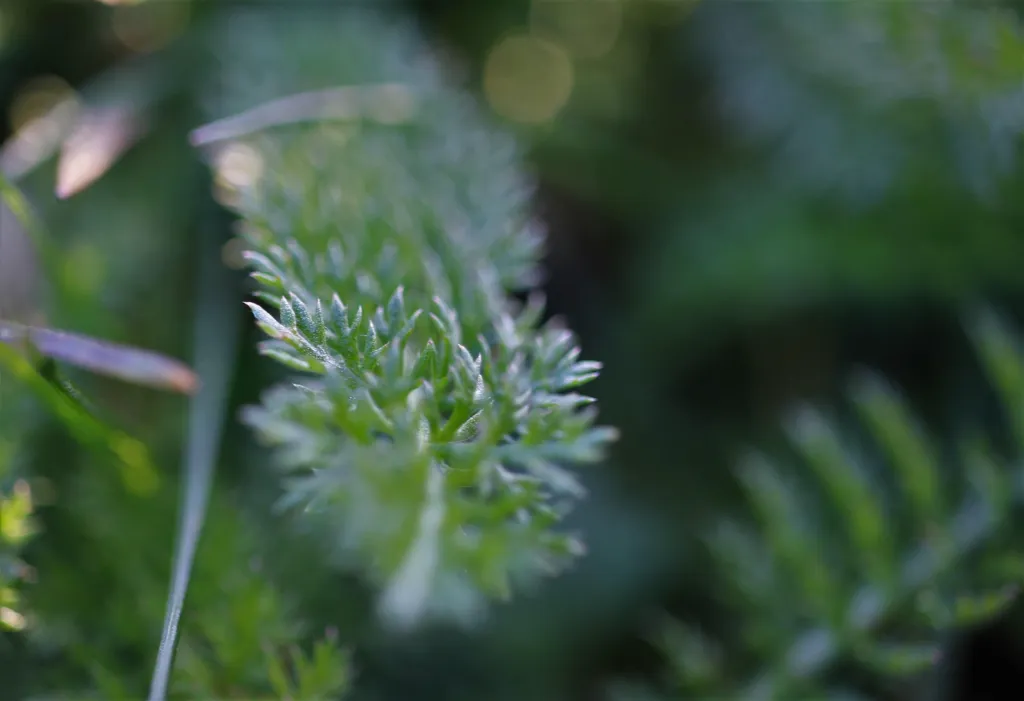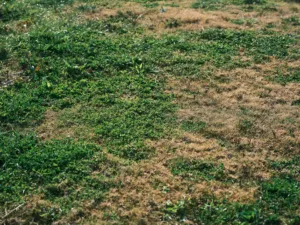
8 Natural Lawn Solutions for Killing Weeds Permanently
Can You Really Get Rid of Southern Weeds Forever?
The struggle against weeds is nothing new to Southern homeowners. We understand that it’s normal to dream of having a flawless, weed-free lawn! The majority of weeds are extremely persistent, despite the allure of a permanent, one-time fix. For years, their seeds can remain dormant in your soil, awaiting the ideal circumstances to cause them to sprout.
Although there’s no guarantee that weeds won’t reappear, you can definitely attain excellent long-term control. The key is a clever approach rather than a single cure-all. You’ll notice a significant difference if you continuously interrupt the growth cycles of weeds and prevent them from becoming established. But what’s the best way to accomplish that?
In addition to trusting the professionals at Green Queen, you can more effectively fight back against weeds with the information below. Keep reading to find out about eight natural weed killers as well as an overview of herbicides.
Is Permanent Weed Elimination Possible?
In actuality, bothersome weed seeds are resilient and may appear unexpectedly. Establishing dependable, long-term habits that maintain the health and resilience of your lawn is the best course of action.
What does that actually look like in real life? Determine the type of weeds you are dealing with first. Knowing your opponent will help you make informed decisions about how to tackle the problem.
Eliminating the weeds you see today isn’t the true objective here. Staying ahead of the seeds that are waiting to sprout next week, next month, or even next season is the goal.
Earth-Friendly Options for Killing Weeds
Maybe you’re not ready to use chemicals, or you’re only dealing with a small patch in a garden bed. These natural methods can be surprisingly successful.
- Vinegar-Based Weed Killers
Household vinegar’s 5% acetic acid might not be sufficient. The stronger substance you need is horticultural vinegar (20–30% acetic acid). To help it stick to the leaves, combine it with a tablespoon of salt and a squirt of dish soap, then spray it directly on a sunny day. Deep roots may not be killed because it is a contact killer, but the foliage will be.
- Boiling Water
The best solution is sometimes the most straightforward one. Weeds in your driveway or sidewalk cracks will be instantly scorched if you pour a kettle of boiling water directly on them. It works incredibly well on young weeds and is completely free of chemicals. Just be mindful of your flowers and grass!
- Dense Turf & Ground Covers
The best natural way to get rid of weeds (or push them out) is to grow a thick, healthy lawn. Naturally, proper mowing, fertilization, and watering are required. In garden beds, you might also consider using dense ground covers that inhibit the growth of weeds, like liriope or Asiatic jasmine.
- Rubbing Alcohol or Vodka
It’s true! Weeds can be dried out with a spray bottle mixture that contains one ounce of vodka (or rubbing alcohol), two cups of water, and a few drops of dish soap. The alcohol exposes the plant’s waxy layer to the sun, so sunny days are ideal for this weed remedy to work well.
- Flame Weeding
Yes, pyromaniacs, you can literally burn weeds to death with a propane torch. It’s ideal for expansive, non-flammable spaces like gravel pathways. Naturally, you should exercise caution, particularly during drier seasons or in fire-prone areas.
- Corn Gluten Meal
Did you know that a naturally occurring byproduct that stops seeds from germinating is corn gluten meal? Sprinkle it on your lawn in the early spring before weeds start to grow. However, because it prevents seeds from sprouting, avoid using it in your vegetable garden or in freshly seeded areas.
- Salt Treatments
We know what you’re thinking: “Salt as a weed killer!?” Yes, you can kill a weed by placing a pinch of rock salt at its base. The problem is that salt sterilizes soil over time. Never use it in your garden beds or lawn unless you want nothing to grow there for months. It works great for driveways and in between pavers.
- Mulch, Newspaper & Cardboard
A heavy mulch layer in garden beds inhibits growth and obstructs light. When starting a bigger project, like a new bed, lay down newspaper or cardboard, wet it, and then cover it with mulch. This “sheet mulching” technique suppresses even the toughest weeds underneath.
Common Weeds in the South
The types of weeds vary depending on where you live, even though they’re a national annoyance. Knowing exactly what you’re up against is half the fight. This is a short list of some common weeds found in the southern United States.
Crabgrass: A coarse, grassy annual that thrives in our long summers and full sun. It crowds out your nice grass by spreading out in a star-like pattern.
Spurge: A dense mat-forming, low-growing summer annual. This typical southern weed is frequently found in troubled lawn areas and grows best in full sun and poor, compacted soil.
Dallisgrass: A hardy, clumping grassy weed that sticks out like a sore thumb and has a distinctive, coarse texture. It returns year after year because it’s perennial.
Nutsedge: A perennial pest that thrives in the area’s heat and humidity, nutsedge is one of the most common weeds in the South. Your clue is that distinctive triangular stem.
Dandelions: The well-known enemy with yellow flowers. They’re resilient due to deep taproots, and their puffballs guarantee that their seeds spread far and wide.

Seasonal & Regional Differences
There are no general guidelines that apply to weeds. Your local climate dictates your strategy, so tailoring your approach is the key to real success.
Warm-Season Lawns: Sorry, but we’ve got some bad news. Weed pressure is an even bigger deal in the South since the growing season for warm-season grasses is longer.
Cool-Season Lawns: The two main strategies for cool-season grasses are applying a spring pre-emergent before the soil reaches 55°F. Then overseed in the fall to naturally push weeds out with a thick, healthy turf.
Dry Climates: Because a lack of rain won’t wash away vinegar or salt remedies, you run the risk of causing long-term soil damage. Although flame weeding works well, there’s a genuine fire risk, so caution is crucial.
Humid Climates: Everything grows quickly when there’s constant moisture. Pay attention to the physical obstacles. In garden beds, mulch is key for obstructing light. Soil solarization, which involves baking weeds under clear plastic, is a chemical-free method of cleaning your slate with the help of the sun.
Stopping Weeds From Returning Again & Again
Landing a knockout blow is not as important as building a self-defense lawn for permanent control. You want to make your yard a place where weeds can’t grow.
The most effective way to keep weeds out? A thick, healthy lawn. You have an advantage because it’s your home turf. Weeds invade weak or struggling grass because they are opportunistic. Making your grass so strong and dense that weeds cannot live there is your aim. However, how is that accomplished?
Watering the right way. Just be sure to water sparingly but deeply. This promotes the development of strong, deep roots for your grass. Don’t sprinkle too often. Overwatering promotes shallow roots and provides the moist conditions that weeds prefer.
Early on, pull small weeds. Although it’s a tough task, it prevents them from dispersing thousands of seeds and causing a much more serious issue the following season.
Aerate and overseed annually. Strong grass outcompetes weeds naturally when the soil is healthy. It’s important to overseed thin areas because it keeps invaders out and encourages a thicker, more resilient lawn.
Mow your grass higher. Increasing the height of your mowing (3″+) helps to shade the soil underneath it. As a result, weed seeds are unable to receive the sunlight they need to sprout. It’s a quick and easy method of warding them off.
Use lawn fertilizer. A healthy lawn has the vital nutrients required for thick growth and increased resistance to weed invasion. Buy fertilizing, you give your grass what it needs to more easily win the battle.

FAQs on Killing Southern Weeds Permanently
Can Dawn dish soap kill weeds?
Yes, a mixture with dish soap can dehydrate weeds, but it isn’t a permanent solution because these weeds can recover eventually.
Is bleach suitable to use on weeds?
Bleach kills weeds, but it’s also toxic, damaging almost anything it touches. It should only be used in non-plant areas where weeds are growing, such as between sidewalk cracks or pavers.
How do you kill weeds without harming grass?
In addition to the natural remedies we listed in this article, you can also hand pull weeds or use specially formulated herbicides.
What is the strongest herbicide?
There isn’t a single herbicide that’s considered the most powerful, but our EPA and state approved professional-grade herbicides are all extremely effective.
Does vinegar kill weeds permanently?
No, vinegar doesn’t usually impact the root, so it allows weeds to grow back.
Herbicide Options for Killing Weeds
For a serious weed infestation, natural remedies aren’t always sufficient. Herbicides can help with that. Knowing the fundamentals of herbicides is beneficial so that you can make the best decision for your yard.
Selective vs. Non-Selective Herbicides
- Selective Herbicides: These are designed to take out specific types of weeds without harming your desired turfgrass.
- Non-Selective Herbicides: These will kill or damage almost any plant they touch. They’re best reserved for completely clearing an area, treating driveway cracks, or for careful, targeted spot-spraying. In short, they’ll kill grass, so they’re not recommended for use on turf.
Pre-Emergent vs Post-Emergent Herbicides
- Pre-Emergent: They prevent weed seeds from sprouting by forming a barrier in the soil. This proactive approach needs to be timed correctly, applying the herbicide before temperatures rise and weeds begin growing again.
- Post-Emergent: These pertain to weeds that are already visible. They’re sprayed directly onto the leaves of weeds that are actively growing.
Contact vs. Systemic Herbicides
- Contact herbicides: These produce rapid results but occasionally fail to kill the root system because they only kill the parts of the plant that come into contact with them.
- Systemic Herbicides: These give perennial weeds a more complete kill by being absorbed by the leaves and then moving down to the root system.
Say Goodbye to Weeds!
Although there isn’t a single solution that can completely eradicate weeds, long-term control is achievable. To stop weeds in their tracks, the best approach combines regular prevention with the appropriate treatment, such as a natural remedy or a targeted herbicide.
Keep in mind that knowing the timing in your area and making a commitment to a healthy lawn will make the biggest difference. Reach out to Green Queen today to learn more about eco pest control and lawn care! We proudly offer these services to the following areas:
